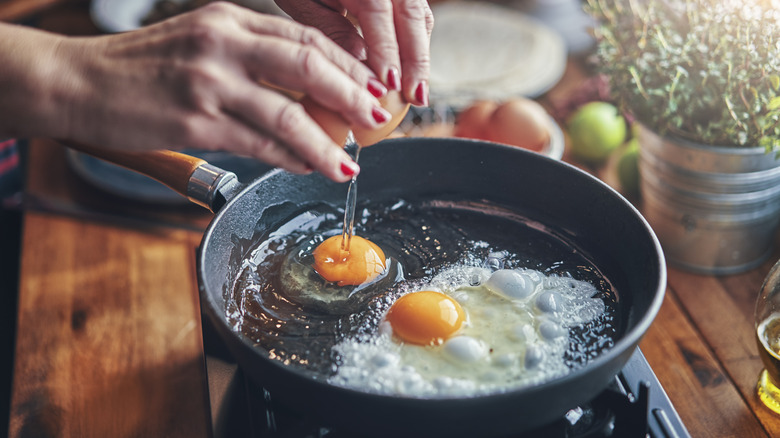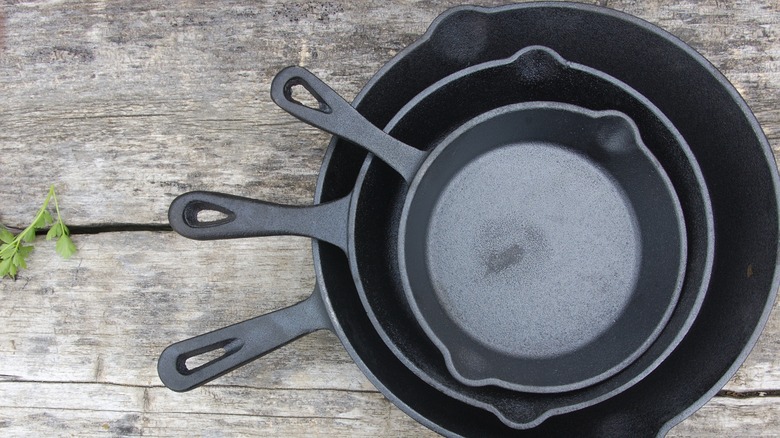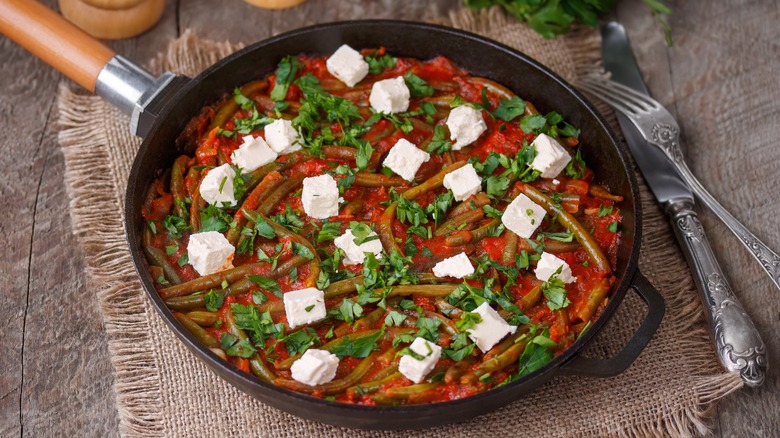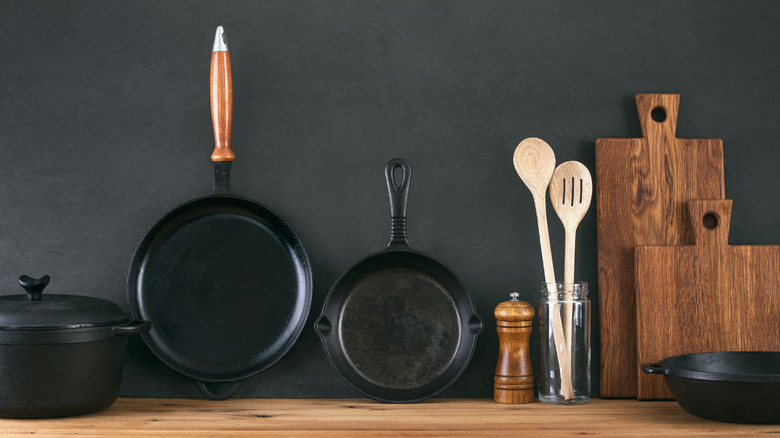The Difference Between Artisan And Mass-Produced Cast Iron Skillets
When it comes to cast iron skillets, not all of them are created in the same fashion. While some are churned out by mass-production factories, others are meticulously hand-crafted by skilled artisans. The disparity between the two lies not only in their production methods, but also in their performance and versatility in the kitchen. But that doesn't necessarily mean that one is better than the other.
Mass-manufactured cast iron skillets often boast a more uniform thickness, making them ideal for everyday cooking tasks like frying and searing. On the other hand, artisanal cast iron skillets, crafted with care and attention to detail, often feature a smoother surface and lighter construction, allowing the pan to become nonstick more quickly. These hand-crafted beauties excel in tasks that require prolonged heat exposure, such as braising, roasting, and baking.
While both types of cast iron skillets have their merits, each shines in its own culinary domain. Whether you're whipping up a quick weeknight stir-fry or slow-cooking a hearty stew, choosing the right skillet can make all the difference in achieving culinary perfection. Let's take a closer look at what separates the two types of cast iron skillets.
Mass-manufactured skillets are easy to obtain
Mass-manufactured cast iron skillets are made in factories, employing modern production techniques to create consistent and readily available cookware. The process typically involves pouring molten iron into pre-made molds made from sand — which melts at a higher temperature than iron. Next, the skillets are then cooled to produce the final product.
One advantage of mass-manufactured cast iron skillets is their affordability and accessibility, making them a popular choice for home cooks and professionals alike. Additionally, these evenly cast skillets can facilitate even heat distribution — though their rougher surface minimizes the ease of cleaning. However, their mass-produced nature can come with additional drawbacks.
Some enthusiasts argue that these skillets lack the character and craftsmanship of their artisanal counterparts, with a tendency to develop surface imperfections and seasoning issues over time. Factory-made skillets also tend to be heavier. Despite these limitations, mass-manufactured cast iron skillets remain a reliable and convenient option for everyday cooking tasks, offering a blend of affordability and functionality that appeals to a wide range of culinary enthusiasts.
Artisan cast iron skillets are best for avid cooks
Artisan cast iron skillets are the result of time-honored craftsmanship and meticulous attention to detail, crafted by skilled workers using traditional methods. Each skillet is painstakingly made by hand, starting with the melting of raw iron in a furnace and pouring it into individual molds. These molds are then carefully shaped and finished, often resulting in skillets with a smoother surface compared to their mass-manufactured counterparts.
One advantage of artisan cast iron skillets is their lighter weight, which allows them to be easier to wield than heavier counterparts. Additionally, these skillets often develop a unique patina over time — but faster than rougher, more cheaply made skillets — enhancing their nonstick properties and adding depth of flavor to dishes. This is in part due to the polishing step that artisans take to ensure the skillet is as nonstick as possible from the beginning.
However, artisan cast iron skillets can also come with a higher price tag and longer lead times, as each piece is made to order and requires skilled labor and expertise. Despite these potential drawbacks, the craftsmanship and qualit make them a cherished investment for serious home cooks and culinary enthusiasts alike, offering a timeless piece of kitchen equipment that can be passed down for generations.
Weigh your options before buying
Choosing the right type of cast iron skillet for your culinary needs depends on a variety of factors, including your cooking style, preferences, and budget. Mass-manufactured cast iron skillets are ideal for everyday cooking tasks. They offer ease of use and convenience in the kitchen, making them a practical choice for beginners and seasoned cooks alike. On the other hand, artisan-made cast iron skillets excel in allowing for more even cooking and enhanced flavor development, making them a favorite among discerning home cooks and culinary enthusiasts.
When choosing between mass-made and artisan-made cast iron skillets, consider your cooking habits and the types of dishes you enjoy preparing. If you primarily cook quick meals and prefer convenience, a mass-manufactured skillet may be the better option. However, if you're passionate about cooking and seek superior performance and craftsmanship, investing in an artisan-made skillet may be worth the extra cost. Ultimately, the right choice depends on your individual needs and preferences, so take the time to research and explore your options before making a decision.



